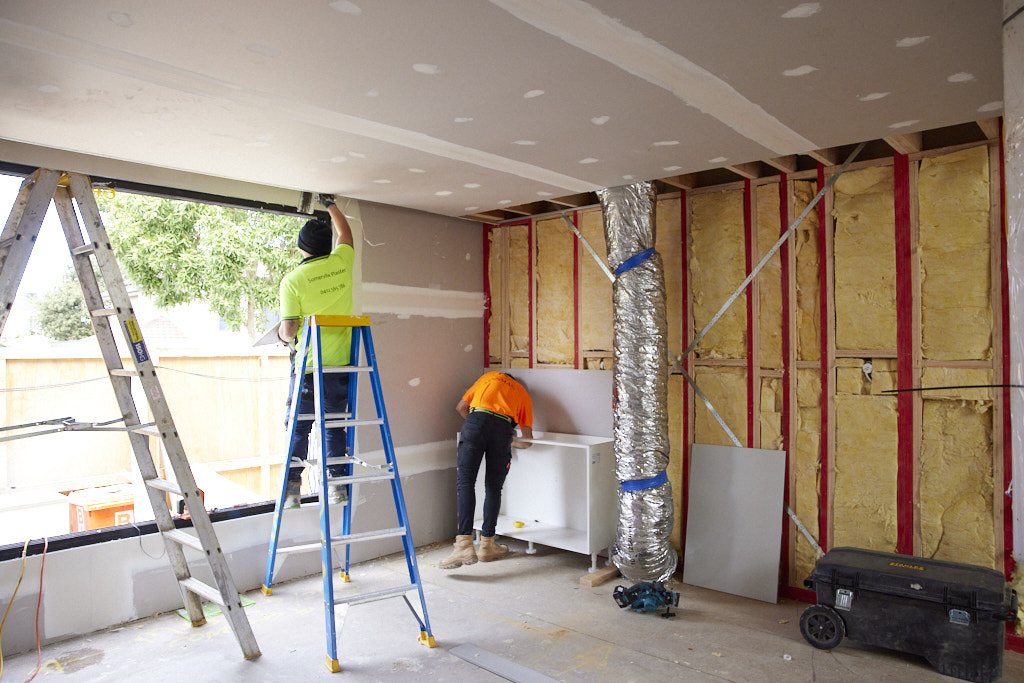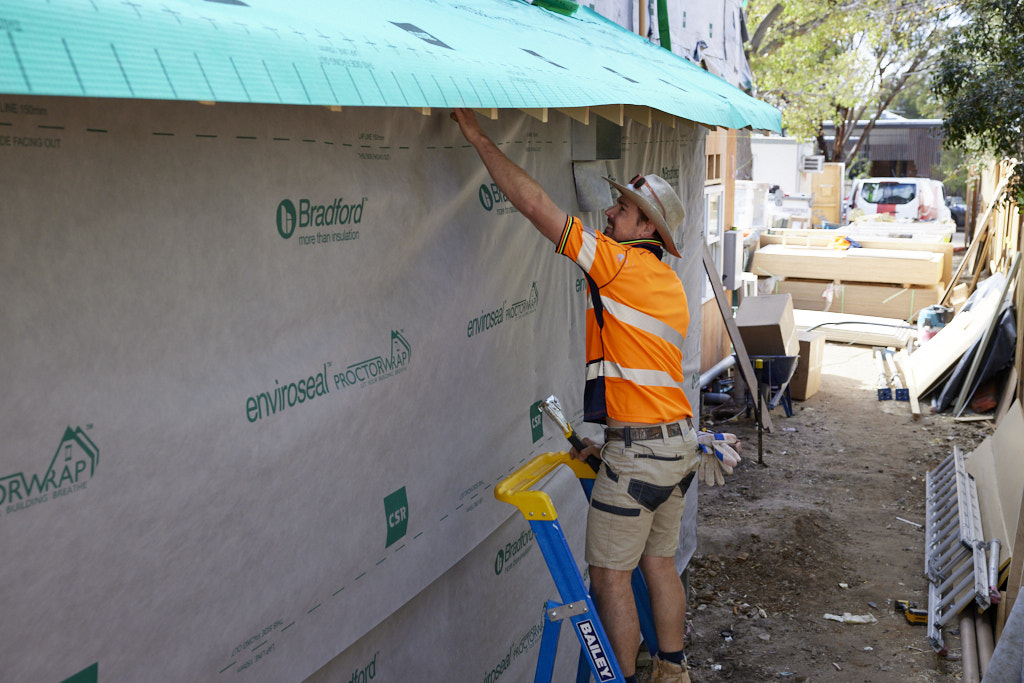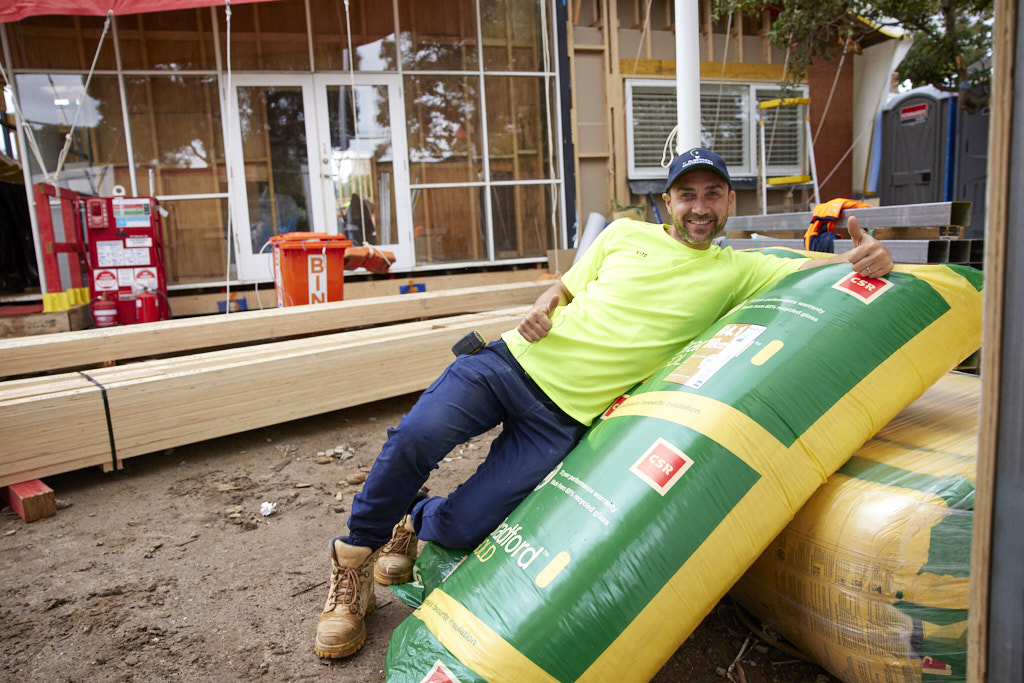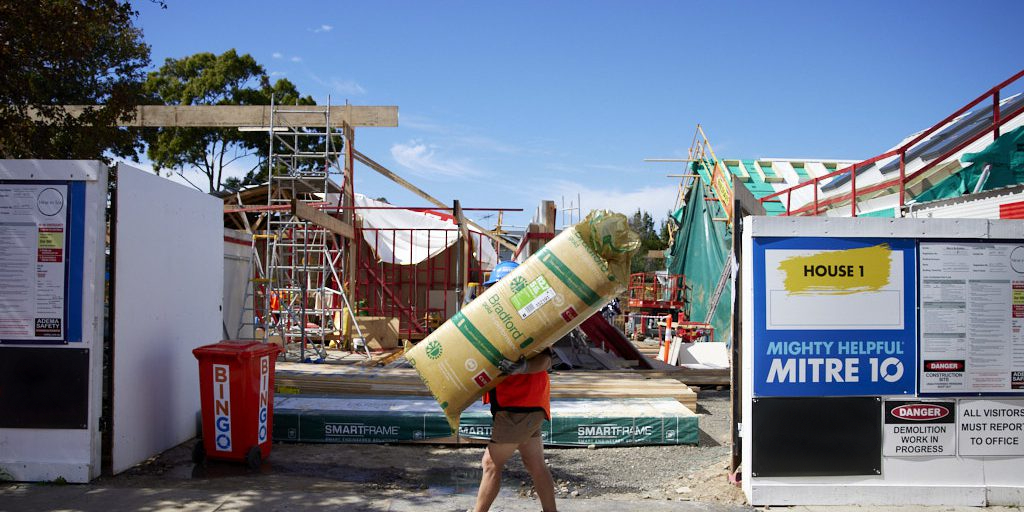Renovating a home can be time-consuming, costly, and very frustrating, but it can also be very rewarding and give you and your family a home you’ll love.
Renovation TV shows like The Block show the trials and tribulations of renovating, but also the many great benefits. But you need to look beyond the beautiful décor and consider all those great products that sit behind the scenes on The Block, such as Bradford quality home insulation.
Seven key renovation considerations
Are you sitting on the fence and tossing up whether a renovation is the right way for you to get the home you really want without having to change your address and leave the community and neighbours you love? Before you make your decision, here are seven key things worth reflecting on first.
#1: Why are you renovating?
Well before you start pondering paint colours, you need to determine why you want to renovate your house and what your future plans might be. If you’re planning to sell the house soon after renovating, you will make different decisions about budget, function, size, and décor than you would if you’re planning to live in it for many years to come.
You will also make different choices depending on whether you want to alter your home to:
- provide more space;
- update the look; or
- reimagine the function of the home.
For example, one of your home renovation goals could be to make your home more energy-efficient, warmer, cooler, or less draughty, all of which can be achieved with quality home insulation products.
Renovation is particularly popular for period homes in established suburbs. The buildings are often solid and worth preserving. You might also love your location, but your family has outgrown your original home and you need to add on a few more rooms. Whatever your reasons, you need to be crystal clear on why you want to renovate before committing to anything.
#2: Consult experts
Before you get too inspired, you need to find out what you can and can’t do with your home. Your first stop will be your local council – to understand what regulations will apply to your home.
For example, a period home might have a heritage listing or overlay that means you cannot alter certain parts of the original home. There might also be other requirements around how close to a boundary you can build or how far back or forward you can expand.
“One of your renovation goals could be to make your home warmer, cooler, or less draughty, all of which can be achieved with the right home insulation products.”
Builders will be your next point of call. Make sure you consult several builders about your potential renovation and seek quotes where it’s applicable. Even if you decide to go with the DIY route, you might still need a builder and/or additional tradies to do some of the work for you.
Local real estate agents can also be helpful, particularly if you’re planning to sell your house soon after renovating. You need to understand how much your home is likely to appreciate in value before you spend money renovating.

#3: Look beyond the décor
Every Sunday night on The Block when the rooms are revealed and judged, the emphasis is mostly on the décor and the exterior finishes. But there’s so much more going on behind the scenes in these renovations. In fact, in many cases, it’s the building products that aren’t visible that have the biggest impact on the comfort and habitability of the renovated home.
The building products that you can’t see are more important than the placement of scatter cushions. Using quality building products like CSR’s Bradford insulation range – which includes wall insulation, wall wraps, ceiling insulation, floor insulation, roof insulation, and roof sarking – is the key to a successful renovation.
For example, if you’re pulling up carpet and polishing timber floorboards, consider installing underfloor insulation like Bradford Optimo. Failing to insulate a suspended floor can lead to as much as 20 per cent of heat loss from your home in winter. Without underfloor insulation, you’ll need to rely more on your heater in winter and air-con in summer, which will drive up your energy costs.
#4: Assess your budget
Once you’ve decided what you want to gain by renovating, what regulations allow, and a rough idea of costs, you need to realistically assess your budget.
How much you’re willing or able to spend on a renovation will depend on many factors, including:
- how long you plan to stay;
- how much a lending institution will provide;
- how much you have saved, and;
- what your priorities are.
You should start your renovation project with at least an estimated budget, otherwise costs will mount up and potentially spiral out of control. This could lead to cost-cutting down the track, or even delaying aspects of your renovation while you amass more funds.
#5: Be realistic about timelines
If you decide to take the DIY route, the timeline for your renovation is likely to grow. Even when you hire a professional builder to do the whole project there can be unforeseen issues that will push your timeline out, like unexpected additional work, material shortages, inclement weather, and more.
“The building products that you can’t see are more important than the placement of scatter cushions.”
Build a contingency into your timeline and have a plan in place if the renovation takes longer than expected, particularly if you need to arrange rental accommodation while the work is undertaken.

#6: Expect the unexpected
Renovations are notorious for uncovering unexpected problems when the outer layers of your home are peeled back. If you’re renovating a heritage home, before you start it’s advisable to have a contingency fund in place to use for unexpected issues.
For example, you might believe your house has sufficient insulation, but when walls and roofs are removed you find it is lacking and you need to add new home insulation to the budget to include a product like Bradford Gold Ceiling Batts.
#7: Find the right people and products for the job
If you’re hiring a builder for your renovation, you need to find someone who you feel comfortable with. A builder who gives you a detailed quote, has all the relevant qualifications and insurance cover, and can do the job in the timeframe required.
Even if you’ve decided to do some of the work yourself, you’re likely to have to hire some trades to do certain work, such as electrical and plumbing. It’s also important to find the right products for your renovation. This is not just about light fittings and wall tiles. It is equally important to invest in quality behind-the-scenes products like wall, floor, and roof insulation. Like all building products, home insulation products vary in quality and in their ability to do the job.
Renovating with Bradford Insulation
Bradford Insulation is Australia’s leading brand of insulation, providing glasswool, rockwool, and foil products to meet all the home insulation needs of a homeowner. Applications include:
- Thermal insulation in ceilings, walls, and under floors;
- Acoustic insulation;
- Sarking for under tiled roofs;
- Condensation control for metal roofs; and
- Ventilation of roof, bathroom, and living spaces.
Learn more about CSR Bradford at bradfordinsulation.com.au
or call 1300 760 233.

